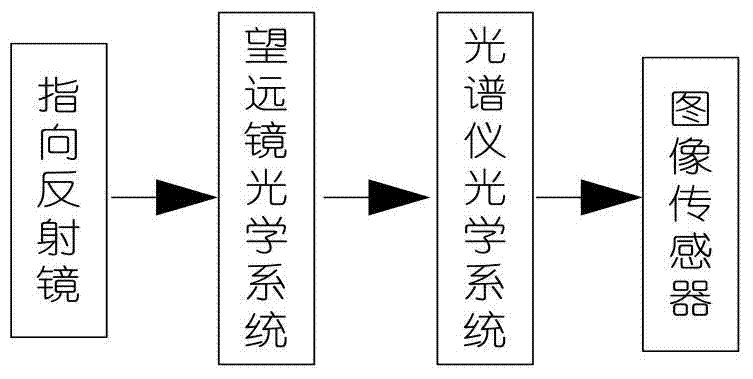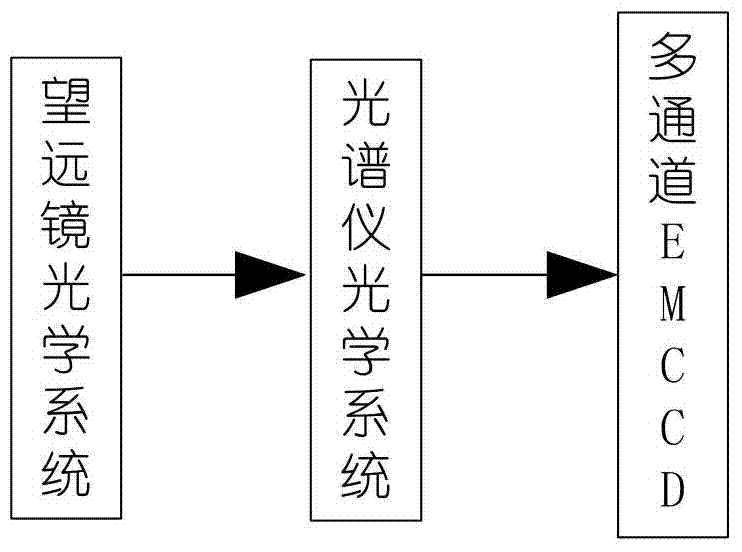Method for achieving spaceborne imaging spectrometer based on multi-channel EMCCD
An imaging spectrometer and a technology of its realization method, which are applied in spectrum investigation and other directions, can solve the problems of reducing the frame rate of image sensors, poor application reliability, low signal-to-noise ratio, etc. Effect
- Summary
- Abstract
- Description
- Claims
- Application Information
AI Technical Summary
Problems solved by technology
Method used
Image
Examples
specific Embodiment approach 1
[0019] Specific implementation mode 1. Combination figure 2 and image 3 Illustrate this embodiment, the realization method of the space-borne imaging spectrometer based on multi-channel EMCCD, this method is realized by the following steps:
[0020] Step 1. The optical signal enters the spectrometer optical system through the telescope optical system and then outputs it through the multi-channel EMCCD;
[0021] Firstly, it is stipulated that the sensor of the imaging spectrometer is an area sensor structure, and the number of columns is the minimum number of pixels per row of the sensor n mini According to the formula: OK; the minimum number of sensor lines of the imaging spectrometer is equal to the number of bands n of the imaging spectrometer 谱段 ; The signal output by each line of the sensor of the imaging spectrometer is read out simultaneously by m channels, and the total output channel number of the sensor of the imaging spectrometer is p 通道 By the formula m×n 谱段...
PUM
 Login to View More
Login to View More Abstract
Description
Claims
Application Information
 Login to View More
Login to View More - R&D
- Intellectual Property
- Life Sciences
- Materials
- Tech Scout
- Unparalleled Data Quality
- Higher Quality Content
- 60% Fewer Hallucinations
Browse by: Latest US Patents, China's latest patents, Technical Efficacy Thesaurus, Application Domain, Technology Topic, Popular Technical Reports.
© 2025 PatSnap. All rights reserved.Legal|Privacy policy|Modern Slavery Act Transparency Statement|Sitemap|About US| Contact US: help@patsnap.com



